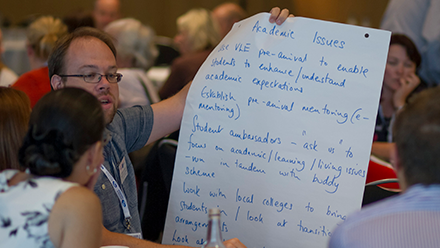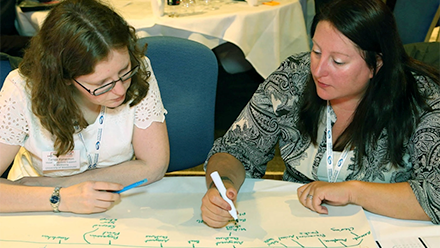HESA staff record: consultation response
AMOSSHE signed a joint letter with multiple sector organisations about the HESA's staff record consultation. The consultation set out to expand the scope of higher education staff record to include technical, professional and operational staff. It also suggests removing terminology that refers professional services staff as ‘non-academic’. The letter can be accessed below.
Here’s our response to the consultation on behalf of our members.
Renaming staff without an academic contract
We support a change in how HESA refer to staff without an academic contract, from ‘non-academic staff’ to ‘professional, technical and operational staff’.
We agree with the change in terminology because it demonstrates the breadth of staff roles without academic contracts located within providers.
We agree with the terminology proposed referring to professional and operational staff. This is because it’s sufficiently broad enough to encompass the different roles that make up student services across providers. We’ve not commented on the terminology and definition of the term ‘technical staff’ as these roles don’t usually fall within the AMOSSHE membership.
Mandatory reporting of data on non-academic staff at UK providers
We support the reporting of data on non-academic staff to be mandatory at UK providers.
This would help improve visibility of professional, technical and operational staff at institutions. Having a mandated data return for staff that includes student services would allow for membership organisations like AMOSSHE to undertake benchmarking activities using this data. For example, providing our members with information on staff to student ratios in student services, and the average number of staff in key areas like wellbeing and disability support. Individual institutions would be able to use this data to understand how their service compares with other providers. Policy makers would also be able to use the data for a better understanding of sector provision outside of academic services. Rigorous collection of this data over time would allow the sector to monitor the impact of UK wide phenomena on the higher education sector. For example, the coronavirus pandemic, the cost-of-living-crisis and the current financial difficulties experienced by the sector.
We also agree that the mandatory reporting of data on non-academic staff across the UK would support with monitoring diversity and inclusion in the sector. This would enable organisations like ourselves to support our membership in understanding and identifying where particular staff groups are underrepresented in student services.
Collecting data on employment functions within staff roles
We agree that there should be separate questions on role and main employment areas when collecting staff data. This would address the difference between academic and professional, technical and operational roles. Reporting whether the role is student-facing and in which area they are employed will allow for further nuanced understanding of the staff data collected.
We recommend that the phrase ‘practice’, listed in respect to main employment area, is clearly defined and/or re-worded to avoid ambiguity. We’d also suggest that HESA provide a clear definition as to what staff roles would fall into ‘student services’. This is because the remit of student services differ by institution. For example, careers teams often (but not always) fall under student services. This would support users to accurately capture data of their professional, technical and operational roles.
Personal characteristic data
We agree with the proposal to align personal characteristic data collected about staff from across the UK. We support any attempt to improve monitoring diversity and inclusion in the sector. This would enable organisations like ourselves to support our membership in understanding and identifying where particular staff groups are underrepresented in the Student Services sector across the UK.



